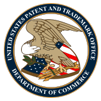USPTO Conducts IP Law and Policy Program in Jordan
The United States Patent and Trademark Office’s (USPTO) Global Intellectual Property Academy (GIPA), in cooperation with U.S. Embassy Amman and with the support of USAID, held an IP Law and Policy Seminar in Amman, Jordan on November 5-8, 2007, that covered Patents, Trademarks, Copyright, and Enforcement. More than 100 participants from Jordan, Iraq, Kuwait, Saudi Arabia, Yemen, Egypt, Lebanon, and the United Arab Emirates participated in the regional event.
The conference began with opening remarks by Minister Salem Khaza’aleh, Ministry of Industry and Trade, who stressed the significance of Jordan's efforts to upgrade its intellectual property protection. Robert Stoll, Dean of Training and Education at the USPTO spoke on the importance of protecting intellectual property from a domestic perspective. The substance of Monday's discussions and presentations focused on copyright. Benjamin Hardman, coordinator of the conference and a copyright attorney at the USPTO, gave two presentations, an "Overview of Copyright" and “Copyright in the Digital Age." A luncheon keynote speech by Mamoun Talhouni, Director General of Jordan's National Library was followed by a talk from Scott Butler, Chief Executive Officer of the Arabian Anti-Piracy Alliance on "Cooperation with Right Holders: Private Sector Perspectives on Copyright Piracy Trends – Objectives, Challenges, Experiences, and Best Practices." The last speaker was Marla Poor from the United States Copyright Office who presented on "Secondary Liability & ISP Liability Limitations." The final hour of the day was utilized as an open discussion period. That evening U.S. Ambassador to Jordan, David Hale, hosted a reception at his residence for all the participants as well as other prominent IP officials and industry representatives.
The second day of the program provided an overview of patents. Minna Moezie, IPR Attaché, U.S. Commercial Service, U.S. Embassy - Cairo, and Karin Ferriter, an attorney with the USPTO who specializes in patents, provided presentations on examination issues related to patents. As a lunchtime speaker, Dr. Laila Jarrar, Director of Drugs at the Jordan Food and Drug Administration discussed Jordan's enforcement activities and drug approval process. Dr. Jarrar was a popular speaker among the participants, especially from Customs and the Judiciary, and she was able to provide detailed answers to their questions. In the afternoon, presentations were given on patent term extension and adjustment and internet patent resources. At the end of the day, there was an open question and answer session. Many of the participants, especially the local patent examiners took this opportunity to ask many questions about the patent examination process, following up on materials presented during the day.
Day three of the program was dedicated to discussions related to trademarks. Cynthia Henderson and Nancy Omelko, attorneys with the USPTO who specialize in international and domestic trademark law, provided presentations including overviews of trademark, geographical indication and well-know mark protection, and of treaty obligations under the Paris Convention, TRIPS, the Madrid Protocol, the Trademark Law Treaty and the Singapore Treaty. Zain Alawamleh of the Jordanian Industrial Property Protection Directorate, the keynote speaker, explained Jordan's approach to protection of trademarks and related issues. Shahan Islam, Senior Corporate Counsel for Pfizer Corporation, provided insight on how a company counters the serious – sometimes deadly – consequences of pharmaceutical counterfeiting. The open discussion period brought a close to the third day.
The final day of the program was devoted to enforcement issues, with special emphasis on border enforcement and interaction with right holders. Robert Stoll, Dean of Training and Education at the USPTO, discussed issues relative to coordinating IPR protection, policy, enforcement, and training. This was followed by a presentation on border enforcement best practices, delivered by Todd Reves, an attorney with the USPTO who specializes in enforcement. The participants then moved to the product identification symposium, which displayed examples of counterfeit products along side the authentic product. This side-by-side comparison allowed the local and international right holders to instruct the participants on how to identify the counterfeit and authentic goods. Following the symposium, Dr. Sakher Jenedi delivered a keynote address, detailing Jordanian Customs’ strategic plan aimed at reducing the flow of counterfeit and piratical goods into the Kingdom. Finally, Jennifer Choe-Groves, an attorney with the Office of United States Trade Representative, discussed the Special 301 process and Free Trade Agreements. The final day wrapped up with a roundtable discussion on all issues previously covered.

